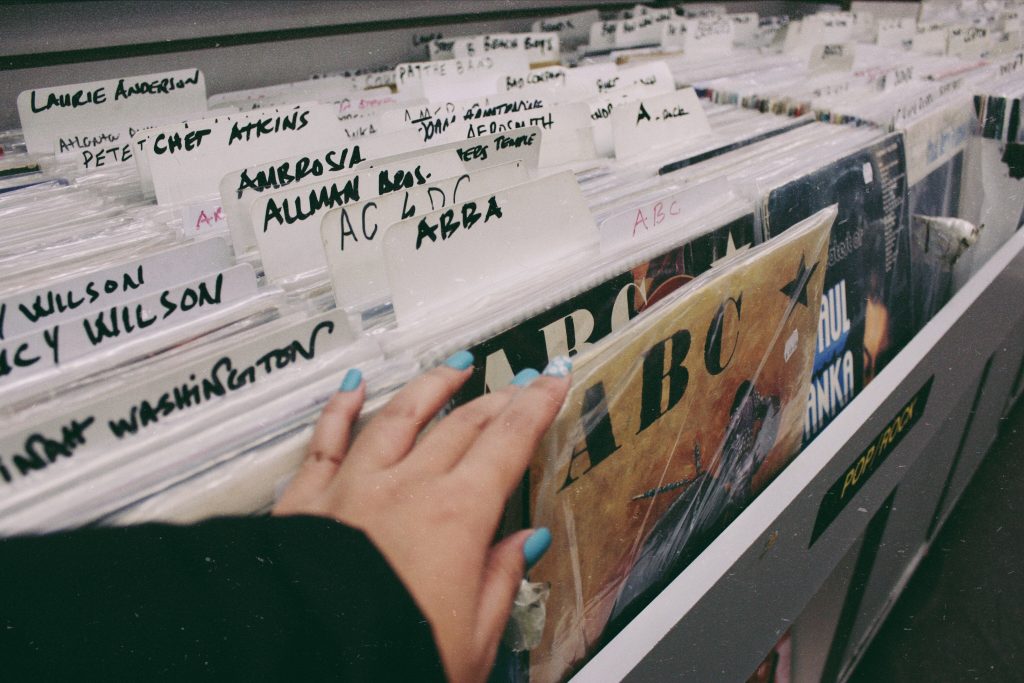Growing up, I wasn’t a huge fan of ABBA. However, over time I have grown to appreciate it for what it is. Maybe I have mellowed, maybe I like it more because it isn’t on every music station, maybe I have just listened to the music. Whatever the case, I grown to appreciate their music. Recently, ABBA sued one of the ABBA tribute bands for using its Music Branding and violating its trademark and causing an erosion of its brand, including its goodwill.

Use of the original branding elements is important for Cover and Tribute bands. However, sometimes the use can result in trademark and copyright claims against the cover band. Photo courtesy of Danica Tanjutco
In some cases, cover bands perform music of an original band under a mechanical license which is paid every time a copyrighted song is performed. A tribute band is more than a cover band. A tribute band uses more of the music branding elements than a cover band which just performs the songs of the original band. A tribute band uses more of the music branding elements of the original band, like their imagery, their look and feel and in some cases, even their likeness. Many of these elements fall within trademark law some within copyright law and some within name and likeness laws.
Music Branding
it can take years for a band to develop a unique sound, a unique look, a unique brand to help distinguish the group from the thousands of other bands out there. Defining your brand is an important step in the development of a band. Many bands spend years developing ways to market their music and develop listeners and loyal fans who are willing to purchase the band’s music. The brand is often part of the story told by the music. This is why it is important to consider how to brand your music when your band is beginning. Copying the music, the look, sound and even the name of a musical group can creates a host of intellectual property issues.
Copyright Law
Copyright law protects tangible creations of works of art. Music qualifies as a work of art. Copyright law allows a musician to prevent others from copying their music, their lyrics and their sound recordings. The copyright owner of the musical composition or the songwriters can receive royalties from others who perform their music. Often times the copyright owner can receive a royalty for the reproduction of the composition and the distribution of any recording of that composition. In some cases, these royalties are mechanical licenses which are administered by music publishers. In addition, musicians receive a royalty for the reproduction and distribution of their own recording. Cover bands which perform their own music based on the original composition will be required to pay a royalty for their use of the original composition.
Trademark Law
Trademark law protect a brand name from use by others which can cause confusion as to source or affiliation. ABBA, as the name of a band which has been registered since 1977 and renewed as required ever since, qualifies as a brand name. As a trademarked band name, they have the right to limit or control the use by other of the same or confusingly similar names. If a cover band wants to use their name, they should contact them first to obtain permission. In addition, if they want to use a name which is likely to cause confusion with the trademarked band name, they should contact the original band or risk a lawsuit. ABBA provided rules for how a cover band should use the original ABBA brand.
In 2010, lawyers for ABBA sent out cease and desist letters to more than fifteen ABBA tribute bands demanding that they stop using the ABBA trademark or risk being sued based on the idea that they were confusing fans into believing they would be hearing the real ABBA band.
Rights of Likeness
Under the rights of publicity, which vary from jurisdiction to jurisdiction, a tribute band can be liable for violating the rights of the original act if they violate the following three elements:
- Does the original band possess a commercial interest in their identity?
- Does the tribute band use some of the original act’s identity without permission?
- Has the tribute band’s use caused some sort of damage?
When you consider these three factors for most tribute bands, you could easily find some type of violation. The best way to avoid this is to contact the original artist and obtain permission. Another way to avoid an issue is to not use any of the original artwork for the original band or any of their music branding elements, or something confusingly similar to the original artist’s artwork or branding elements. If you have any questions or concerns, feel free to reach out to one of our attorneys.
